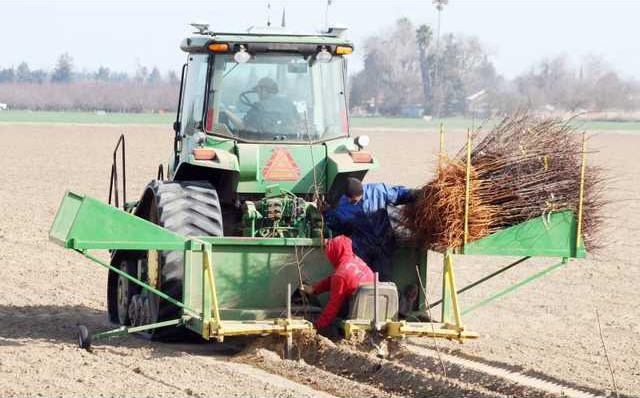Despite opposition from Central Valley legislators and agricultural organizations statewide, Gov. Jerry Brown signed AB 1066 into law entitling farmworkers to overtime pay for the first time.
The bill mandates that farmworkers receive time and a half pay if they work more than eight hours in a day or more than 40 hours in a week, and double pay if they work more than 12 hours in a day. Currently, farm workers get overtime pay after working 10 hours in a day or 60 hours in a week.
The new law will be phased in beginning in 2019, with annual half-hour-per-day increments until reaching eight hours, and annual five-hour-per-week increments until reaching 40 hours. Smaller farms having 25 or fewer employees have until 2022 to start implementing the overtime rate.
AB 1066 additionally authorizes the Governor to temporarily suspend a scheduled phase-in of overtime at any time until full implementation of phase-in overtime requirements or Jan. 1, 2022, whichever comes first, if the Governor suspends minimum wage increases based on economic conditions.
The signing of the bill was celebrated Monday night by the United Farm Workers at events around the state.
"For 78 years, a Jim Crow-era law discriminated against farm workers by denying us the same overtime rights that other workers benefit from here in the U.S. Today, Governor Brown corrected a historic wrong and set an example for other states to follow," said United Farm Workers President Arturo S. Rodriguez in an issued statement.
Those opposed to the bill argued that the seasonal nature of farm work makes it difficult to apply to standard overtime regulations and that the added costs could result in lost jobs, wages, and higher food costs.
“We are extremely disappointed that this legislation was signed into law, as it will be harmful to farm employees, farmers, consumers and the environment. Those who work on California farms will see reduced paychecks and have their lives disrupted as these new worker overtime rules come into play. California consumers will have fewer opportunities to buy California-grown farm products that are produced under the most stringent food safety, employment and environmental rules in the world.
“Legislation such as AB 1066 only works if California consumers buy California farm products and opt not to buy cheaper food products from sources outside of California that do not meet the same labor and environmental stewardship standards that our farm products do.
“It is unfortunate that those who will suffer the economic consequences of this ill-conceived statute are not the ones that wrote it and passed it into law,” said California Farm Bureau President Paul Wenger.
Senator Tom Berryhill (R-Twain Harte), a lifelong farmer, issued the following statement in response to the Governor signing into law AB 1066: "Of the 789 bills presented to the governor in the final days of the legislative session, no one bill will be ultimately more devastating to the California economy than Assembly Bill 1066. While well intentioned, this bill will result in less income for the agriculture worker. The ripple effect will wreak havoc on California's economy, particularly in agricultural communities."
Brown's signature on the bill, which came without comment from his office, came 41 years after he first oversaw implementation of a farmworker overtime policy as governor in 1975 when the state Industrial Welfare Commission ordered agricultural employers to pay workers overtime.
It came on the heels of the nation's largest agricultural labor strike that saw thousands of workers walk off farms in 1970 and picket for farm owners to negotiate fair labor conditions with the UFW, established by Cesar Chavez.
When he returned to the governor's office in 2011, Brown was again confronted with a debate over farm-labor relations. Rodriguez and Democratic leaders in the Legislature pushed a bill to make it easier for a group of farmworkers to unionize by recognizing them after a majority signed up, without a formal vote and the accompanying certification process.
Brown wrote in a message vetoing that legislation that he appreciated the frustrations that gave rise to the proposal, but he was not convinced the sweeping changes were justified.
Fast-forward five years to Brown's unprecedented third term as governor, and he chose to stand in favor of agricultural labor rights.
The Associated Press contributed to this article.





